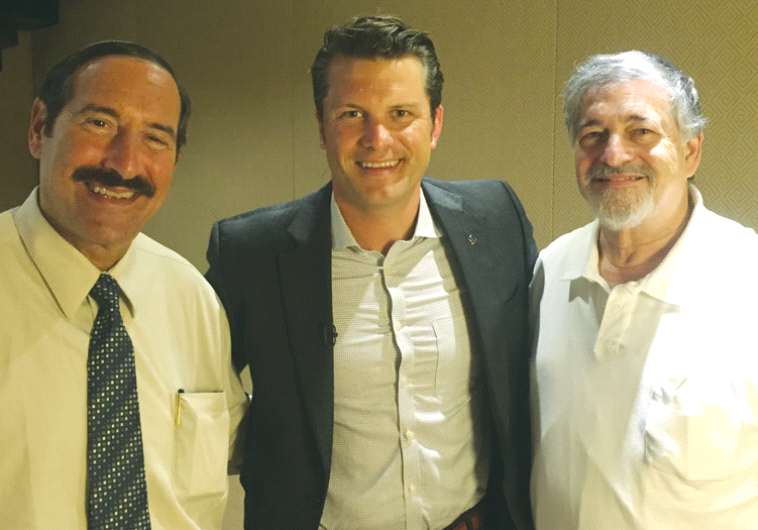Pete Hegseth: America can learn from Israel
US commentator and Iraq war veteran speaks in Jerusalem about America’s failure of leadership and the future of Iraq.
 JOE FRAGER (left), Pete Hegseth (center) and Paul Brody pose at the King David Hotel in Jerusalem(photo credit: SETH J. FRANTZMAN)
JOE FRAGER (left), Pete Hegseth (center) and Paul Brody pose at the King David Hotel in Jerusalem(photo credit: SETH J. FRANTZMAN)